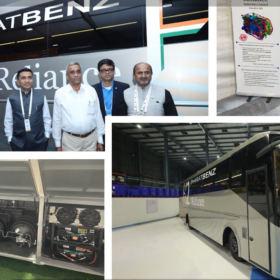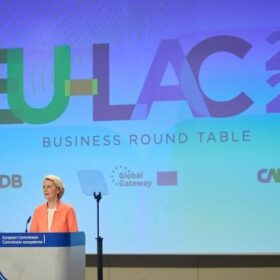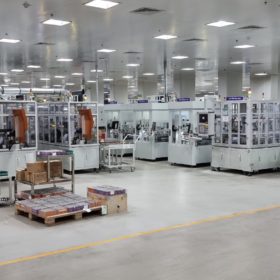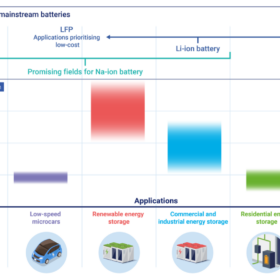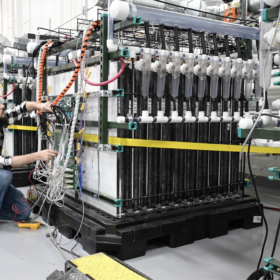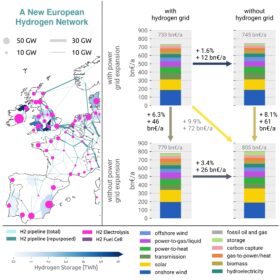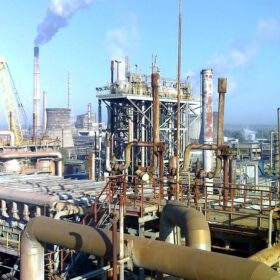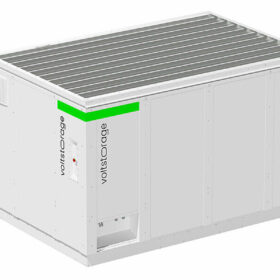Govt to retender 20 GWh battery cell capacity under PLI Scheme
The Ministry of Heavy Industries (MHI) will retender the 20 GWh advanced chemistry battery cell capacity that was left unallocated after Hyundai Global Motors Co., one of the winners of the 50 GWh PLI tender, withdrew from the scheme last year.
Reliance Industries, BharatBenz unveil intercity luxury bus powered by hydrogen fuel cell
The intercity luxury coach, engineered by BharatBenz, runs on Reliance Industries’ hydrogen fuel cell technology.
The Hydrogen Stream: EU, Argentina, Chile, Uruguay to partner on hydrogen
The European Commission and the European Investment Bank have agreed to collaborate with Argentina, Chile and Uruguay on hydrogen, while Masdar, Mitsubishi and Inpex have said that they will use green hydrogen to produce e-methane and polypropylene.
Exide Energy secured $85.3 million of orders for lithium-ion battery packs, modules in fiscal 2022-23
Exide Energy (Nexcharge), which started commercial production last year, received a healthy order inflow for lithium-ion-based battery packs and modules during FY 2022-23.
Sodium-ion battery fleet to grow to 10 GWh by 2025
Global demand for sodium-ion batteries is expected to grow to just under 70 GWh in 2033, from 10 GWh in 2025, at a compound annual growth rate (CAGR) of 27%, according to UK-based market research company IDTechEx.
JSW Energy targets 40 GWh/5 GW of storage capacity by 2030
JSW Energy targets to become a 20 GW power generation company along with 40 GWh/5 GW of energy storage by 2030. It is also investing in solar manufacturing and green hydrogen production.
Former US coal plant to host 100-hour iron-air battery
The Minnesota Public Utilities Commission (PUC) has approved Form Energy’s 10 MW/1 GWh iron-air long-duration storage facility for Xcel Energy.
The Hydrogen Stream: Hydrogen grid could cut Europe’s energy costs by 3.4%
German researchers say gas-grid retrofits for hydrogen transport, combined with power grid expansion, could decarbonize Europe’s economy, while S&P says the global ammonia trade could expand by nearly 10 times by 2050.
The Hydrogen Stream: Scientists use perovskite compound to store ammonia
Japanese scientists have developed an organic-inorganic halide perovskite compound for the chemical storage of ammonia (NH3), while Bosch is preparing to exhibit new products in the hydrogen value chain.
VoltStorage unveils vanadium redox flow battery for commercial use
Germany’s VoltStorage says its containerized 50 kWh vanadium redox flow battery solution can be scaled up to 500 kWh.

